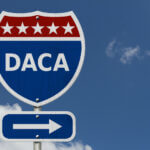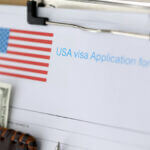Contents
In December, the U.S. Supreme Court approved – at least for now – a travel ban that prevents most individuals from Yemen, Somalia, Chad, Iran, Libya, Syria, and North Korea, as well as some individuals from Venezuela, from traveling to the United States.
If you or your family or employees are affected by the travel ban, keep reading.
You’ll learn the details of the court’s decision, and you’ll also learn what you may need to do if you are impacted by the travel ban.
The travel ban approved by the Supreme Court – again, at least for now – includes precise travel restrictions that vary from nation to nation.
The travel ban does not apply to lawful permanent residents – that is, green card holders – from those eight nations, nor does it apply to dual nationals who are traveling on the passport of the non-restricted nation.
Although Attorney General Jeff Sessions said that the Court’s approval of the travel ban is “a substantial victory for the safety and security of the American people,” the Court’s action is being widely criticized by a number of legal, immigration, and pro-Muslim activist organizations.
The American Civil Liberties Union, for example, was one of the first groups to express its disappointment with the Supreme Court’s action.
IS THIS THE END OF THE TRAVEL BAN CONTROVERSY?
However, the Supreme Court did not end the travel ban controversy.
Rather than hearing arguments and rendering a formal and final ruling, the Supreme Court order merely lifts the injunctions – imposed by federal judges in Maryland and Hawaii – that were preventing immigration authorities from enforcing the travel ban.
This keeps the legal issues alive and allows pending legal challenges to the travel ban to continue proceeding through the courts.
The federal judges in Maryland and Hawaii both cited discrimination as the reason for their decisions – but they found different kinds of discrimination. Judge Derrick Watson said from Hawaii that the September travel ban illegally discriminates against persons based on their nationalities.
In Maryland, Judge Theodore Chuang determined that the travel ban illegally discriminates against persons on the basis of their religion.
Judge Watson and Judge Chuang both exempted from the travel ban those travelers who have a credible claim to a “bona fide” relationship with a person or entity in the United States, as the Supreme Court required in June 2017 when the justices considered an earlier version of the travel ban.
But the two judges interpreted those with “a credible claim to a bona fide relationship” to include grandparents, grandchildren, brothers- and sisters-in-law, aunts, uncles, nieces, nephews, and cousins.
However, after the Supreme Court’s action, most of these individuals will – at least for now – be banned from travel to the United States.
WHEN WAS THE CURRENT TRAVEL BAN FIRST ISSUED?
The specific travel ban considered by the Supreme Court in December was issued by the White House on September 24th.
That is the third version of a travel ban that President Trump promised prior to the 2016 election.
The first version of the travel ban generated chaos and triggered a number of protests when it was briefly and awkwardly implemented in January 2017.
Most of the critics of the travel ban, as well as several federal courts, have contended that the travel ban is discriminatory because it predominantly targets Muslims.
The Supreme Court’s action in December, however, leaves open the possibility that provisions of the travel ban may eventually be revoked by federal appeals courts or by the Supreme Court itself.
The Court offered no reason why the injunctions were lifted, and it noted only that two of the justices, Ginsburg and Sotomayor, had dissented from the decision.
By including North Korea and Venezuela in the third version of the travel ban, the Trump Administration has tried to counter the charge that the travel ban is discriminatory, although its critics would argue that those nations were included only to make a discriminatory travel ban seem less discriminatory.
WHAT DISTINGUISHES THIS TRAVEL BAN FROM EARLIER VERSIONS?
The travel ban issued in September is much more clear and concise than the original travel ban that was issued in January 2017.
The September travel ban spells out the reasons why each nation is on the travel ban list, provides for several very narrow exceptions, and addresses the lack of cooperation with the United States by the nations on the list.
The travel restrictions are not precisely the same for every nation, and the travel ban still allows immigration officials to issue waivers to individuals on a case-by-case basis.
Nevertheless, many here in the United States and around the world continue to presume that the Trump Administration’s travel ban is primarily an expression of prejudice against Muslims.
In separate legal proceedings subsequent to the Supreme Court’s action, attorneys on both sides of the travel ban presented arguments in December before a three-judge panel of the U.S. Court of Appeals for the Ninth Circuit in Seattle, and other lawyers argued before the full U.S. Court of Appeals for the Fourth Circuit in Richmond.
WHEN WILL THE TRAVEL BAN MATTER FINALLY BE RESOLVED?
It’s probable that those courts’ decisions have already been handed down by the time you are reading this, but whether they uphold or reject the travel ban in whole or part, their decisions will certainly be appealed to the United States Supreme Court, which conceivably could issue a final decision on the travel ban before the Court’s current term ends in June 2018.
No one can know what will ultimately happen regarding the travel ban, but the best result would be a decision that points all parties toward a just resolution while maintaining our nation’s historic commitment to immigration and diversity.
For now, if you or your family or employees are affected by the travel ban, do not hesitate to obtain advice from an experienced Las Vegas immigration attorney.
If you have questions about the current travel ban or any other aspect of immigration law, let an attorney provide the reliable legal advice and services you need.
If you are applying for a visa or a green card, or if you need help bringing employees or a family member to the U.S., arrange to consult a skilled Las Vegas immigration attorney who routinely handles these matters on behalf of immigrants, their employers, and their families.





